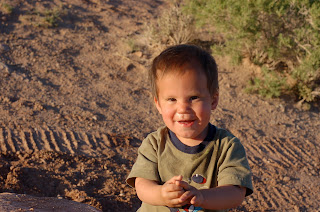I really liked the emphasis on the importance of having a peaceful environment in the home. Sometimes I feel guilty for not allowing too much loud noise and silliness in the house. I want my kids to have fun together and enjoy their time, but there is a certain level of rambunctiousness that feels more like disregard for those around them. I'm not sure where the line is, but I can say that there are times when I love to hear my kids laughing together and other times when it feels rude and the peace seems to leave our home. Is it a certain decibel level? Is it my own mood? As I think about it, I think it has more to do with the content of their conversation. If they are enjoying uplifting conversation and laughing with one another, the peace stays in the home. However, if they are making fun of something, being sarcastic about situations, laughing at someone's expense, or acting somewhat unrefined (making loud silly voices, potty humor, etc) it seems to wear on me and the peaceful feeling I would like to maintain in our home.
I liked this point:
I want them to grow up in such a refined, beautiful, and heavenly home, that they are uncomfortable with anything less than their best, and thus choose their best by their own free will. However, if I allow them to destroy the quality of that environment by their own misbehavior, they will never know what that level of living feels like. How then will they ever be comfortable with it, and how will they ever choose it for themselves? In my experience, if I set the standard high, and keep it high, the children taste it and know that it is good, and set it up as their standard by which to compare everything else.'Of course this also means that besides "loud laughter" (as I defined it for myself above), that whining, rudeness, and contention in any form are not allowed (at least in my presence) since it goes against what I am trying to create. It is becoming easier to feel when the spirit leaves our home since we are becoming more accustomed to having His peaceful feeling with us.
I am going to stop feeling guilty about having a high standard. When kids have consistent consequences if they choose not to uphold a high standard they "are not comfortable to ever becoming accustomed to a sloppy standard". Just because rudeness is the norm in much of the world around us does not mean that I have to allow some of it in our place of refuge from the world.
I also really liked the understanding that I am not controlling them or their agency when I give them consequences lovingly. It is when I become rude or frustrated, or when I lecture them about what they already know (implying that they are not smart enough to figure it out themselves) that I am trying to control their behavior with my emotions and words. Loving consequences is how our Heavenly Father teaches us. He is always there for us, waiting with outstretched hands. I do not ever doubt how He feels about me. Yet, there are always consequences for my wrong actions and I want to repent because I want the peaceful feeling of His presence in my life. His feelings toward me don't change, but His Spirit can not dwell in unholy places so I must do my part to have Him with me.
I see this paralleled in Keri's approach. She sends her kids away from her loving presence for a little while until they are willing to act in a way that is conducive to the feeling of peace that she wants to maintain. Yet through it all, there is no feeling of resentment or frustration on her part - just sympathy for a child who is trying to learn. And just as Heavenly Father expects us to do our part to find answers and guidance for ourselves, Keri suggests keeping quiet after giving a consequence so that the child can consider the behavior on their own and figure things without being told what to think, thus owning the teaching for themselves.
"The minute you begin telling them what to think, and what they ought to have learned, you destroy the inherent teaching power of the consequence..."I loved the idea of not "carrying" a child through a learning experience. I am guilty of this at times. I know that there are certain chores that sometimes I "carry" my children through so that they get done well and they still feel like they did them, but in reality they are not learning to do the job well and I am fooling myself into thinking that they are (this is different than job training because I do not tell them that I am teaching them and I expect them to do a quality job the next time - I am just pretending that they are doing a good job already).
"It is not the end results that determine if our teaching is taking root; the end results could be too deceiving. It is, rather, the sustainability of our efforts which determine the success of them."The last thing that I realized that I most needed to hear is how incredibly important it is to always be loving and consistent. I can safely say that I am usually loving and pretty consistent, but this hit me pretty hard:
"When we deliver a consequence with even the slightest bit of frustration, the child is robbed of the opportunity to focus on changing, because they are too busy conquering a more important challenge ---that of figuring out how to get their parents' love back." (emphasis added)I don't think my kids ever doubt my love for them, but I do think they worry about my good opinion of them sometimes. I want them to know that I think they are wonderful, capable, amazing human beings even when they make mistakes. The trap I sometimes fall into is that I am not consistent in giving a loving consequence and so I allow their behavior to annoy me after a while and then when I finally give the consequence I do it in a frustrated voice which clearly indicates that I am disappointed in them.
I've been trying all of this, and I must admit that it can be hard in application. This is probably because I am trying to tackle too many "problem areas" at once. Lately it's that I want dinners to be had with uplifting and interesting conversation instead of with silly games and talk. I want loud voices to be saved for the outdoors. I want the children to respond the very first time I tell them something. I want them to do their work quickly and well. Since we've gotten into several bad habits in these areas, I feel like I'm giving out consequences all of the time. Maybe it would be better to focus my energies into a couple of habits first and then move on to the next ones. I don't want to make it sound like our house is a zoo. I do think it is a peaceful place most of the time, but I do want to iron out some glitches and bad habits that I know will make a difference in truly making a "refined, beautiful, heavenly home".












































